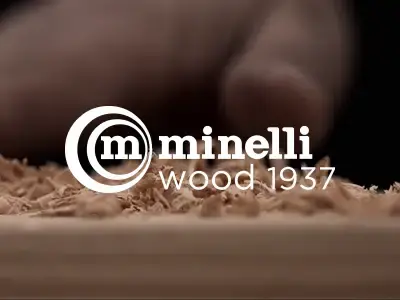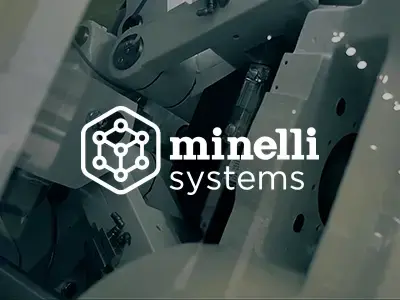
Automation has revolutionized many industries, and wood product manufacturing is no exception. With increasing demand for efficiency, precision, and customization, companies that manufacture wooden components have turned to automation to enhance their operations. However, while automation plays a pivotal role, it does not replace human expertise.
This article explores the impact of automation on wood product manufacturing, highlighting the indispensable collaboration between technology and human experience.
Wood product manufacturing: boosting efficiency and productivity
Automation has undeniably improved efficiency and productivity in wood product manufacturing. Machines equipped with advanced capabilities can complete repetitive tasks quickly and accurately. CNC (computer numerical control) machines, for example, have revolutionized processes like cutting, shaping, and assembly, allowing manufacturers to produce components with greater speed and precision.
However, while automation can handle repetitive or precision-based tasks, the oversight, fine-tuning, and strategic planning required to optimize these systems are still deeply reliant on human skills. Moreover, human operators ensure that each process runs smoothly and adjust systems to meet unique product requirements, which machines alone cannot fully anticipate.
For instance, while CNC machines may cut wood to precise specifications, the initial design, conceptualization, and decision-making involved in those processes are human-driven.
.jpg?width=500&height=334&name=23-_DSC6730%20(1).jpg)
Maintaining precision and consistency in wood product manufacturing
One of the key advantages of automation in wood manufacturing is its ability to deliver consistent, high-quality results. Automated machinery can perform repetitive tasks with high precision, ensuring that every product meets exact specifications. This consistency is vital for maintaining product quality.
However, automation alone cannot guarantee the required level of oversight needed for premium results. Skilled professionals play an essential role in monitoring these systems, ensuring that they operate correctly and intervene when necessary.
Moreover, the process of quality control, even when automated, benefits from human involvement. Final inspections often rely on the expertise of workers who can assess not only the physical characteristics of the components but also their aesthetic quality, making sure the product aligns with the client's specifications and standards. In this way, automation enhances precision, but human experience is vital for maintaining excellence.
.jpg?width=500&height=334&name=264_DSC9802%20(1).jpg)
Reducing waste and promoting sustainability
In today's manufacturing landscape, sustainability is becoming increasingly critical. Automation contributes significantly to more sustainable production practices by optimizing the use of raw materials, reducing waste, and ensuring efficient energy consumption. Advanced machinery, such as automated log scanners and cutters, can analyze the dimensions of logs to maximize usable wood, minimizing scrap and offcuts.
However, human expertise remains critical to implementing and maintaining these sustainable practices. While machines can optimize the cutting process, it's experienced workers who understand how to program and operate them efficiently, factoring in the unique characteristics of different wood types and the final product requirements.
Moreover, sustainable manufacturing often requires ongoing adjustments, new material sourcing, and innovative approaches to reducing environmental impact. This is where human innovation and experience are irreplaceable.
-min.jpg?width=500&height=333&name=manufacturing-8(1)-min.jpg)
Meeting customization demands through technology and craftsmanship
Today, the demand for customization has grown significantly in every industry. Automation helps meet this demand by allowing manufacturers to produce custom items at scale. For example, computer-aided design (CAD) and computer-aided manufacturing (CAM) systems make it possible to translate specific design requirements into precise, repeatable production processes.
However, the flexibility required for customization is deeply reliant on human skills. Designers and craftsmen bring creativity, innovation, and problem-solving abilities to the table, ensuring that customized products not only meet functional requirements but also capture the client’s vision and style. Automation, while crucial for executing technical tasks efficiently, cannot replace the human element of creativity and design.
Additionally, when unexpected challenges arise during the customization process—whether related to material properties or design complexity—experienced workers are essential in adapting and finding solutions.
.jpg?width=500&height=334&name=338_DSC9998%20(1).jpg)
The future of automation and the importance of human expertise
As automation continues to evolve, the role of human expertise in wood product manufacturing will remain indispensable. Future advancements in artificial intelligence (AI), robotics, and the Internet of Things (IoT) will bring new opportunities for efficiency, precision, and sustainability. However, these technologies will require human supervision, creativity, and strategic input to ensure their successful implementation.
AI-powered machines may learn and optimize processes over time, but human oversight will still be needed to program, maintain, and adjust these systems. The integration of IoT devices into manufacturing environments will allow for greater data collection and real-time monitoring but interpreting that data and making informed decisions based on it will remain the responsibility of skilled professionals.
In conclusion, while automation plays an increasingly important role in wood product manufacturing, human expertise is not only still relevant but also crucial for the success of automated systems.
At Minelli, human expertise remains at the heart of every process, even in the age of automation. Our craftsmanship, combined with advanced technology, allows us to deliver high-quality, customized products for every need.
Contact us for a free consultation and discover how we can support your project with efficient and tailored solutions.







